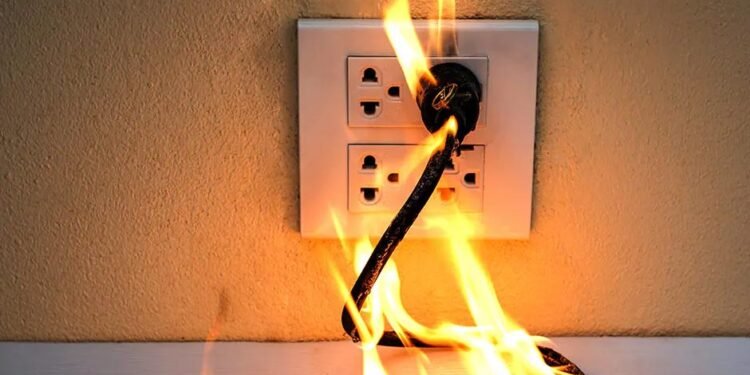February 4-10 marks Burn Awareness Week, an annual observance dedicated to raising awareness about the prevention and treatment of burns. While burns can result from various sources, one often overlooked but significant contributor is electrical mishaps. In our modern world, where electricity powers almost every aspect of our lives, understanding and practicing electrical safety is crucial.
Importance of Professional Expertise
Electrical safety begins with awareness and education. Many incidents occur due to ignorance or carelessness regarding the hazards associated with electricity. According to FEMA, there were 24,200 residential building electrical fires resulting in nearly 300 deaths in 2021. It’s vital to understand the potential dangers and take proactive measures to mitigate them. One common misconception is that only high-voltage systems pose a threat. However, even low-voltage appliances and faulty wiring can lead to serious injuries or fatalities.
First and foremost, never underestimate the importance of qualified professionals when dealing with electrical installations or repairs. DIY projects might seem tempting, but they often result in improper wiring, leading to electrical fires or shocks. Hiring a licensed electrician ensures that work is done safely and up to code, reducing the risk of accidents.
Routine Maintenance and Inspections
Regular maintenance of electrical systems and appliances is another crucial aspect of safety. Inspect cords, plugs, and outlets for signs of wear or damage, such as fraying or exposed wires. Replace any faulty components immediately to prevent potential hazards. Additionally, never overload outlets or extension cords, as this can lead to overheating and fires.
Safe Usage Practices
When using electrical equipment, follow manufacturer instructions and safety guidelines diligently. Avoid using damaged or wet appliances, as water and electricity make a dangerous combination. Furthermore, keep flammable materials away from heat sources, such as heaters or electrical appliances, to prevent fire hazards.
Emergency Preparedness
Another critical aspect of electrical safety is understanding how to respond in case of an emergency. In the event of an electrical fire, never use water to extinguish it, as water conducts electricity and can lead to electrocution. Instead, use a fire extinguisher rated for electrical fires or smother the flames with a non-conductive material like a fire blanket. Additionally, know the location of circuit breakers or fuse boxes and how to safely shut off power in an emergency.
Personal Protective Equipment (PPE)
For individuals working in industries where electrical hazards are prevalent, such as construction or manufacturing, proper personal protective equipment (PPE) is essential. Insulated gloves, safety goggles, and non-conductive footwear can significantly reduce the risk of electrical injuries.
Educating Children about Electrical Safety
It’s also crucial to educate children about electrical safety from a young age. Teach them to never touch electrical outlets, cords, or appliances with wet hands and to never insert objects into outlets. Use outlet covers or tamper-resistant receptacles to prevent young children from accessing outlets.
Open the Dialogue to Increase Safety
In conclusion, electrical safety is a fundamental aspect of burn awareness and overall home safety. By staying informed, practicing caution, and taking proactive measures, we can significantly reduce the risk of electrical accidents and the associated burns. This Burn Awareness Week, let’s commit to promoting electrical safety in our homes, workplaces, and communities. In the event of an injury caused by an electrical mishap, get in touch with an Albuquerque injury lawyer to recover compensation from any negligent parties. Remember, it only takes a moment of carelessness to cause irreversible harm, but with awareness and vigilance, we can prevent tragedies and create safer environments for everyone.













